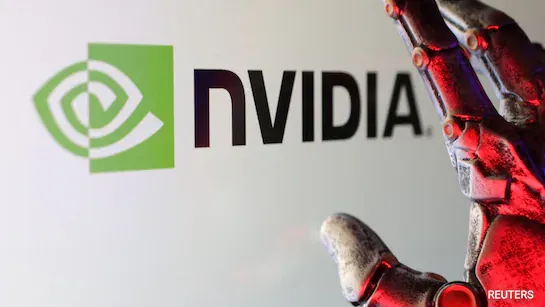How AI Could Save Britain’s Economy: The Two-Hour Miracle That Changed Everything

As Britain wrestles with slow growth, stubborn inflation, and fears of rising taxes, a surprising force is emerging as a potential economic savior: artificial intelligence. From mid-tier accounting firms to major corporations, businesses across the UK are discovering that AI is not just another buzzword but a tool that can radically boost efficiency, cut costs, and reshape how work is done.
Some companies are already seeing spectacular results. At Moore Kingston Smith (MKS), an accounting firm using AI to automate parts of its workflow, one team produced a fraud-checking report in just two hours — a task that used to take two weeks. Another division that embraced AI more aggressively reported profit margins eight percentage points higher than teams using traditional methods.
These early wins have fueled optimism that AI could finally solve Britain’s productivity problem — a challenge that has held the country back for nearly two decades.
Why AI Adoption Matters for Britain Now
A Productivity Crisis Decades in the Making
Since the 2007–08 financial crisis, Britain’s productivity has faltered. Growth has slowed, wages have stagnated, and businesses have struggled to keep up with global competitors. Economists say weak productivity accounts for half of the decline in pay growth since 2008 — a key factor behind widespread voter frustration and political pressure.
Prime Minister Keir Starmer’s government faces an economy that has grown sluggish, with the highest inflation in the G7 and widespread labor shortages. Budget forecasters are expected to downgrade the country’s long-term growth potential, pushing Finance Minister Rachel Reeves toward possible tax hikes to reassure financial markets.
In this bleak landscape, AI shines as one of the few promising levers for meaningful improvement.
The UK’s Huge Advantage: A Service-Driven Economy
Why the Services Sector Makes Britain AI-Ready
Services represent roughly 80 percent of the UK economy — a share matched only by the United States. Even more importantly, Britain’s strength lies in high-value sectors such as accountancy, finance, law, education, and architecture.
These industries stand to gain the most from early AI adoption.
Ratings agency Moody’s said the UK could benefit more than many other countries precisely because its services sector is so dominant. Unlike heavy manufacturing, service-based tasks often involve large amounts of data, documentation, and repetitive processes — areas where AI thrives.
At MKS, for example, clients now upload entire datasets rather than large bundles of invoices, bank statements, and receipts. AI analyzes information automatically, leaving accountants more time to work with clients directly.
The firm relies on an AI system built on Google’s Gemini 2.5 model, which is being expanded across new tasks. With the models improving rapidly, the productivity payoff keeps growing.
In short, AI allows service-driven businesses to do more work, at higher quality, with fewer manual tasks and lower costs.
Business Leaders Say AI Is Good for the Bottom Line
Companies Embrace AI for Practical, Not Political, Reasons
Executives insist they aren’t chasing AI for hype or headlines — it simply makes financial sense.
PepsiCo Chief Sustainability Officer Jim Andrew explained that AI improves supply chain stability, which is crucial for a company that relies heavily on agricultural products. The goal, he said, is to ensure farmers remain successful, productive, and supported.
Other companies see AI as essential for global competitiveness. Carbon credits platform Patch attended the COP30 climate conference to connect with sustainability leaders from Europe, showing how AI-driven firms want to stay plugged into international conversations.
Despite political tensions in Washington, U.S. companies also poured into the COP30 conference, reminding the world that the private sector sees AI and climate technology as long-term investments, not political footballs.
Could AI Be the Turning Point for Britain’s Economy?
Economists Cautiously Predict Small but Significant Growth
Experts agree that AI’s long-term economic impact is still uncertain. But many believe it will boost growth in the years ahead — and possibly give Britain an edge over other European economies.
Bank of England Governor Andrew Bailey has described AI as a potential game-changer, though he warns that major technological revolutions take decades to fully show up in productivity statistics. He pointed out it took around 40 years before the invention of electricity transformed economic data.
Even so, economists believe AI could add 0.1 to 0.2 percentage points to annual growth — a meaningful bump for a country growing at just 1.5 percent a year.
Capital Economics predicts Britain could adopt AI more rapidly than France or Germany because of its lighter regulation and more flexible labor laws.
A Mixed Picture for Manufacturing
AI Can Help, But Robots Might Be More Important
While services stand to benefit quickly, the future looks more complicated for UK manufacturing, which suffers from high energy costs, expensive labor, and weaker infrastructure.
Some companies are exploring AI-based planning tools, but many see robotics and automation — rather than AI alone — as the real path to competitiveness.
Jonathan Duck, CEO of flooring manufacturer Amtico, said he plans to invest heavily in robotics to reduce labor-intensive processes. Manufacturers remain cautious, especially after Reeves’ earlier increase in labor-related taxes, and worry future hikes could undermine growth plans.
The Harsh Reality: AI Could Reduce Jobs — At Least in the Short Term
Employers Expect Headcount Cuts
One of the biggest concerns surrounding AI is its impact on workers.
A recent survey from the Chartered Institute of Personnel and Development found that:
- 17 percent of private-sector employers expect to cut jobs because of AI in the next year
- Only 6 percent plan to increase hiring
At MKS, graduate hiring was reduced this year, though the company says this pause is temporary and designed to encourage staff to adapt quickly to new AI tools. Leadership insists hiring will return to normal levels once employees are fully trained and the firm finds the right balance between technology and human judgment.
The goal, they say, is not fewer people — but smarter work.
The Bigger Picture: Britain Must Move Fast
Will AI Fix Everything? No — But It Might Fix Enough
AI alone cannot solve all of Britain’s economic problems. The country still needs better infrastructure, a streamlined planning system, and improved workforce training. Business investment remains low, and many firms still fear that regulators won’t keep up with fast-moving technology.
Yet amid these challenges, AI remains one of the few bright spots in the economic outlook.
Economists, business leaders, and policymakers increasingly agree on one thing: if Britain embraces AI quickly and intelligently, it could spark the productivity revival the country has been chasing for nearly 20 years.
As one expert put it, improving productivity may not be everything in the long run — but right now, for Britain, it might be almost everything.

